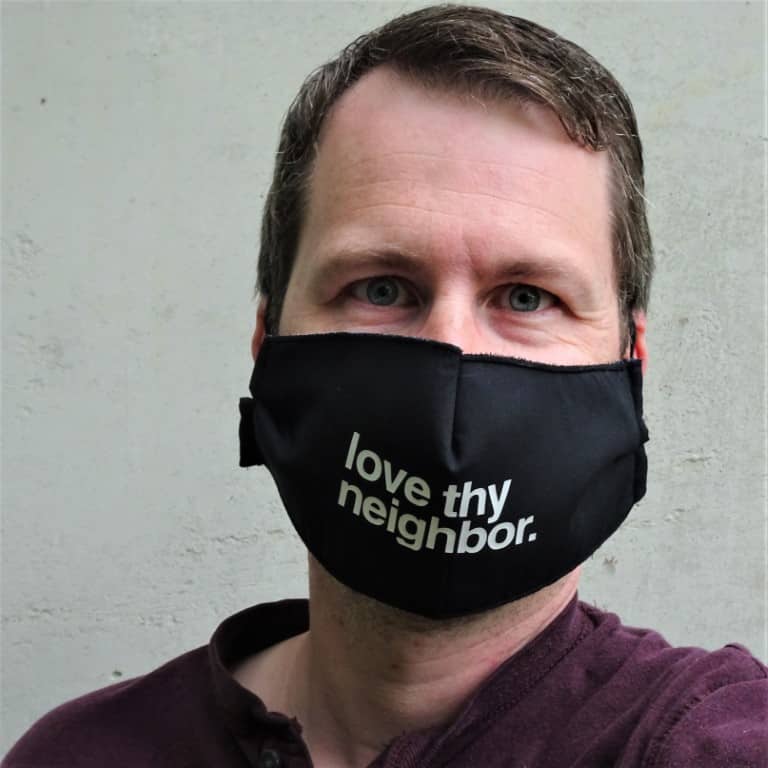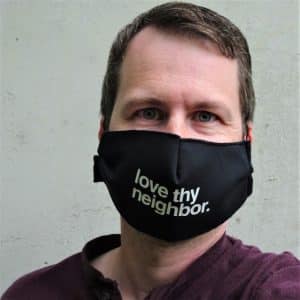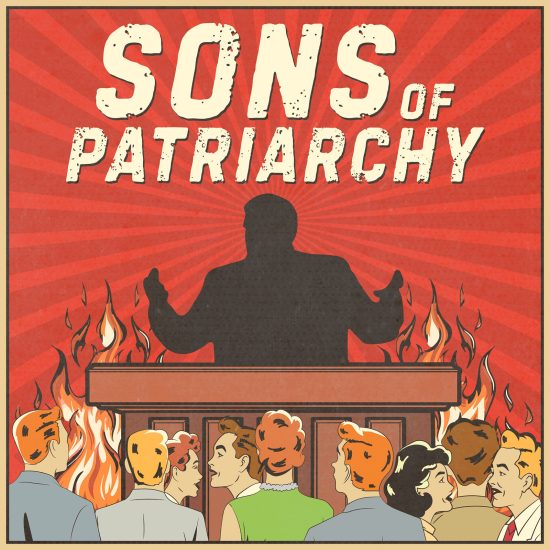
As a child, I imagined the bandits who beat and robbed the man in Jesus’s parable about being a good neighbor wore masks. Now, I’m pretty sure the Samaritan who helped the man was the one really covering his face.

Brian Kaylor
Somehow a debate rages about whether we should wear a mask during the coronavirus pandemic — even though science shows we could cut the outbreak by as much as 80% if people would just wear masks! And it’s not just about keeping ourselves safe. Rather, wearing masks is actually to help protect others.
Yet, protestors across the country proudly ignore rules on social distancing and suggestions to wear masks just to proclaim their “freedom.” Two men in California refusing to wear masks broke the arm of a Target security guard. And an upset customer in Michigan even shot and killed a Family Dollar security guard for saying people need to wear a mask to shop there. That’s starting to sound like the robbers on that dangerous road between Jericho and Jerusalem.
Sadly, even some religious leaders joined the political movement against masks. R.R. Reno, editor of the Catholic magazine First Things, called the push for wearing masks “fear driven” and a sign of “cowardice.” Reno previously criticized churches for suspending in-person services to prevent the spread of the virus.
And we’ve seen many politicians who often talk about their faith similarly refuse to wear masks despite the advice by their health advisors. A Republican state representative in Ohio, who is a Catholic, said he wouldn’t wear one because he’s made in the image of God.
“We are all created in the image and likeness of God. That image is seen the most by our face. I will not wear a mask,” argued Nino Vitale. “That’s the image of God right there, and I want to see it in my brothers and sisters.”
I wonder how Moses would respond to Vitale’s remark. Given Moses’s flashes of anger I’m not sure Vitale should make that remark if the old prophet is holding stone tablets or a staff. Because Moses covered his face out of concern for his neighbors. And he didn’t take that action because he doubted the image of God was there. Moses literally wore a mask because he saw the likeness of God more clearly than any of us will in this life.
When Moses came down Mount Sinai with the second version of the Ten Commandments, the narrator in Exodus tells us “his face was radiant because he had spoken with the Lord.” This alarmed the people. So, the text notes, “he put a veil over his face.” He wore a mask to protect his neighbors.
Frankly, that’s a pretty small ask for Moses then and us today. It’s not like we’re being called to go out on a dangerous road, risk our lives rescuing a sick man, and then spending our own money to help him get well. No, we’re just asked to stay home when possible, and to wear a mask when we go out. It seems so simple I’m tempted to think even the priest and Levite who walked on by that poor man would be able to handle this task. But then I watch the protesters on the news and I see the priest and Levite carrying angry signs.
And I see the priest and Levite at our government podiums as our leaders refuse to model the life-saving behavior we need. This isn’t even necessarily about government mandates. We need leaders who can rise to the moral challenge of the moment. Unfortunately, the Samaritan must be unelectable.
For instance, Missouri Governor Mike Parson, a Baptist, repeatedly goes on PR visits to grocery stories and businesses without a mask. When asked about why he doesn’t wear a mask, he launches into a lecture about why he doesn’t mandate them.
“I think it’s up to the individual,” Parson said. “I don’t think it’s government’s place to regulate that. It’s your personal responsibility. Common sense, self-discipline, your choice.”
But that wasn’t the question. The question wasn’t will he mandate it. The question was why he didn’t personally wear one. And if it is a personal choice and responsibility, why did he — like so many other politicians right now — choose to cross by on the other side?
The priest and Levite didn’t break a governor’s decree when they kept going. We don’t praise the Samaritan for following the government mandate but for going the extra mile to love his neighbor.
In this unusual time, we should show our love of our neighbors in unusual ways. We temporarily suspend in-person worship services. We stay home for awhile whenever possible. And we wear masks. In a time like this, the “Good Samaritan” is a Masked Samaritan.






